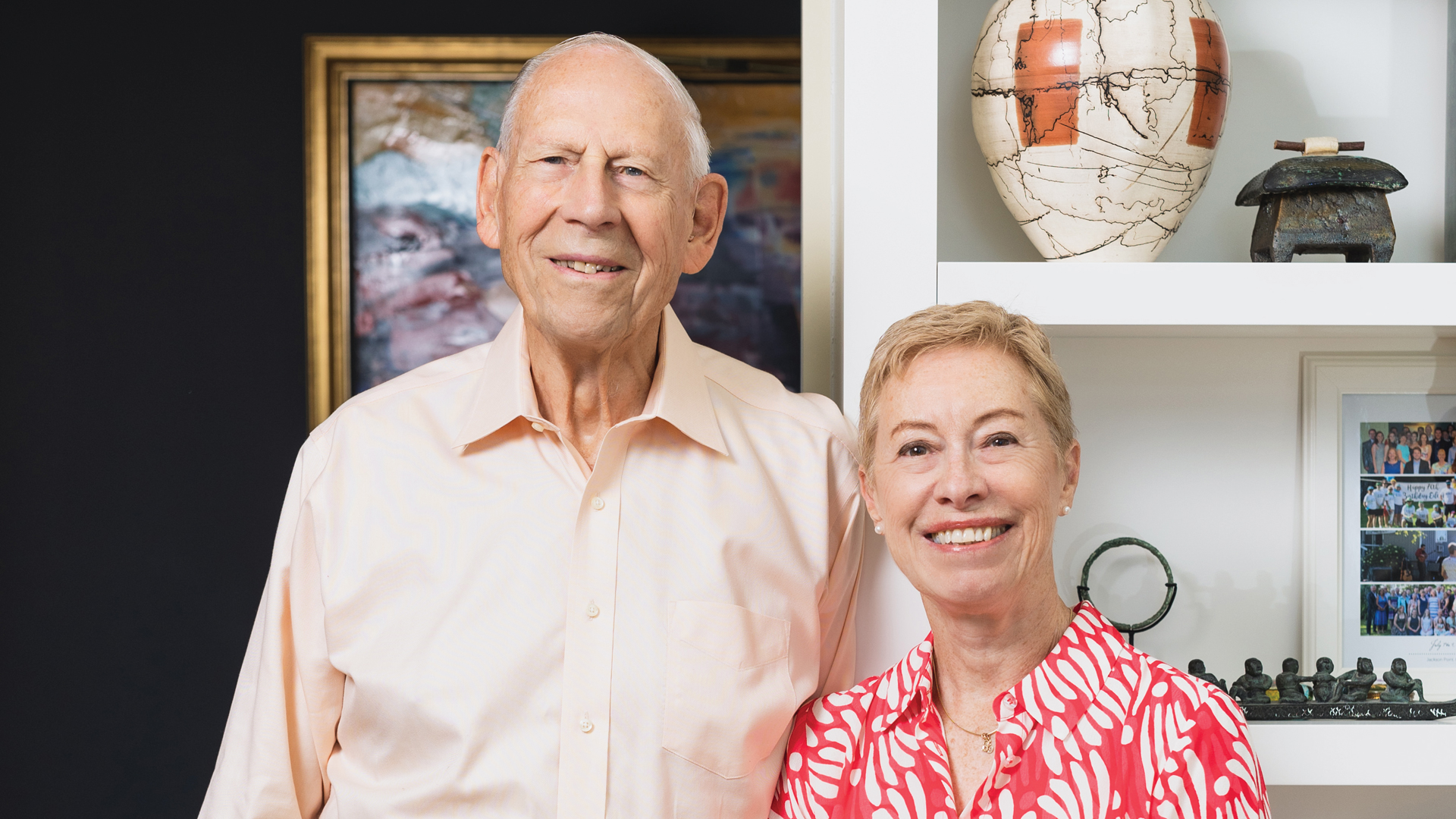By: Leslie McCarley
4 Oct, 2022

Leslie: This year, we’re asking our communities to believe the impossible. What do you see as the merit in this approach?
Eileen: Well, what if it isn’t impossible? CIFAR brings together the brightest people across borders and academic disciplines to ask big questions. They work together to find answers, each contributing unique knowledge, skills, and experiences. When you have international collaboration, you gain access to the best minds, all of whom bring things to the table and take findings out into the world. This approach leads to breakthroughs. Following it, who knows what we’ll discover about who we are, our world, and our place amongst the stars? Canada and the world need more CIFAR.
Charles: CIFAR’s bold and audacious thinking inspires us. It’s why we give to CIFAR and encourage others to join us.
Leslie: You have been engaged with CIFAR for many years. What brought you here?
Charles: More than forty years ago, when CIFAR was just an idea, Fraser Mustard, CIFAR’s founder, saw what other people didn’t at the time — the importance of looking at big questions from various viewpoints. As chairman of two companies at the time, I directed some funding to support this work. I think we were among CIFAR’s first corporate donors. When I retired, I continued to support this work as an individual.
Eileen: Chuck was already part of CIFAR when we met. In the beginning, I tagged along, but then I started to see how CIFAR’s research model worked and noted how many intelligent people were joining. Nobody was holding back — they were all sharing their knowledge and skills for the betterment of science and society.
Leslie: Over the years, you have seen CIFAR evolve. What did you notice, as ideas became reality?
Charles: We always enjoyed attending meetings where you could sit with exciting folk, so we weren’t just reading a report: you can have conversations with people, find out what they’re doing, and have some give and take. Those were always great fun. To have that kind of personal contact with researchers made our impact real.
Eileen: At CIFAR events, they would salt the table with researchers from different programs and give us questions to consider. Chuck and I found those conversations stimulating because they were with people we wouldn’t have met otherwise. When you don’t spend money on bricks and mortar, you can be agile and respond to threats and opportunities. You don’t have to try and turn the Queen Mary! CIFAR invests in people.
Leslie: What about CIFAR’s approach resonates with you?
Eileen: CIFAR is a guiding light. Forty years ago, CIFAR saw where research was headed and led us to where we are today. Researchers will continue to rely on CIFAR for that long-term perspective. CIFAR’s work is so broad and ahead of its time. It’s international and good for Canada and the world.
Leslie: If you had to pick one area of CIFAR’s research, which would you say speaks to you the most?
Charles: I have been directing my philanthropy toward CIFAR’s energy conservation work for years. Some research has been asking what we can learn from the sun and what processes it inspires. As an engineer, I know you lose energy when you transfer it from here to there, but with plants — with photosynthesis — you don’t. There’s so much we can learn from nature and apply to research that will impact our daily lives. The possibilities with carbon capture alone are incredibly fascinating.
Eileen: I’ve been intrigued by CIFAR’s Humans & the Microbiome program. I find it fascinating because researchers are looking at what shapes our health from a different perspective — the gut. It’s simple yet, at the same time, revolutionary — we don’t know much about the microbiome, and there is so much potential.